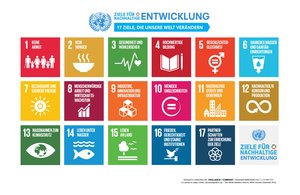Parliaments for sustainable development
Peace, democracy and the rule of law are prerequisites for economic and social development in all countries. Parliaments are key players in promoting sustainability and resilience at both national and international levels. Due to their democratically important functions as legislative, controlling and representative bodies, national parliaments can play an active role in the implementation of the Sustainable Development Goals (SDGs). This includes the identification of legal inconsistencies and the search for adequate solutions. In particular with regard to this task, it is necessary to strengthen the capacities of parliaments.
MPs have a key role in building a sustainable system. They are in a position to demand social, environmental and economic sustainability: through motions for resolutions, questioning government at the plenary, inquiries, regular exchange of knowledge with civil society and academic actors, and the call for an SDG reporting duty of ministries to Parliament.
Agenda 2030
The universally valid 17 Sustainable Development Goals were adopted at the UN general Assembly 2015 (in force since 2016) and must be implemented in each signatory state by 2030 according to the respective national framework conditions. In the Ministerial Council Decision of 12 January 2016, the Austrian Federal Government commissioned the Federal Ministries to implement the 2030 Agenda through the mainstreaming approach (incorporation into relevant strategies and programs) and to set up an inter-ministerial working group responsible for coordination and reporting.
Selected SDGs of the partnership between Zambia and Austria
The partnership focuses on strengthening the Austrian and Zambian parliaments in implementing selected Sustainable Development Goals (SDGs):
SDG 16: Building effective, accountable and inclusive institutions at all levels
SDG 4: Inclusive, equitable and high quality education and lifelong learning opportunities for all
SDG 4.4: Higher numbers of young people and adults with professional and vocational qualifications for employment, decent work and entrepreneurship
SDG 4.7: Qualification of learners through education for sustainable development and lifestyles, human rights, gender equality, a culture of peace and non-violence, a global citizenship, the appreciation of cultural diversity and the contribution of culture to sustainable development
SDG 3.7: Information and Education on Sexual and Reproductive Rights
As the implementation of the SDGs is a multi-stakeholder process, governments, parliaments, states, municipalities, economic partners and the civil society play central roles in the parliamentary partnership, which aims at improving communication of representing bodies with citizens and the promotion of democracy to children and adolescents.


